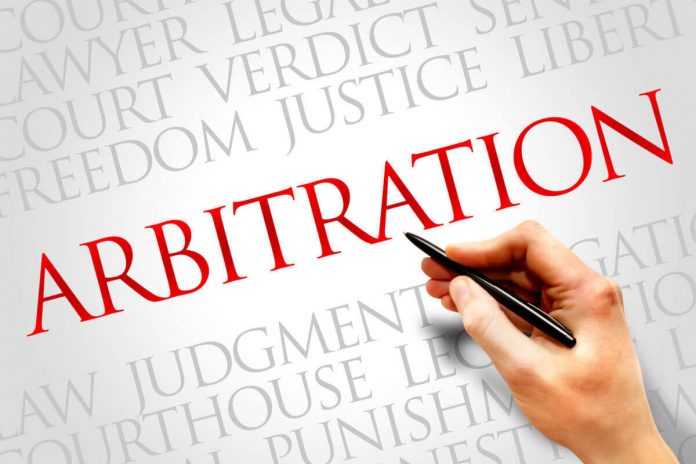This article is written by Jagruti Shah. This article has been edited by Ojuswi (Associate, Lawsikho).
This article has been published by Sneha Mahawar.
Table of Contents
Introduction
Through this article, the author will deliberate on what is an emergency arbitrator, the Indian perspective on an emergency arbitrator and unsettled questions around the same.
The word ‘emergency’ straightforwardly means exigency. When a party is under a threat that the subject matter of the Arbitration will be destroyed, rendering him remediless, such situations require immediate relief to avoid the entire proceeding from being infructuous. Accordingly, the Arbitration and Conciliation Act, 1996 (hereinafter referred to as ‘the Act’) offers interim reliefs. In Section 9 (before the Arbitral Tribunal is formed), the aggrieved party can appeal to a national court that has jurisdiction, or in Section 17 (after the Arbitral Tribunal is established), the Arbitral Tribunal can provide interim relief to protect the arbitration’s subject matter. Section 9 provides for interim reliefs by the Courts at three stages namely – before, during and after the passing of arbitral award but, before the enforcement of the award under Section 36 of the Act. Section 17 of the Act, provides for interim reliefs by the Arbitral Tribunal after its constitution only during the Arbitration proceedings. Therefore, it is pertinent to note that in cases where Arbitral Tribunal is not constituted and there is a need for an urgent relief to preserve the matter in status quo until the dispute is heard on merits, the only option left with the party is to approach a National court having jurisdiction under Section 9 of the Act which is a long drawn process.
The formation of an Arbitral Tribunal is also a time-consuming task and hence, the concept of Emergency Arbitrator (‘EA’) becomes crucial as it provides for pro-term or conservatory measures to the party/parties before the establishment of an Arbitral Tribunal. The concept of EA is similar to the concept of ad-interim injunction as provided by Section 37 of the Specific Relief Act, 1963 and regulated by the Code of Civil Procedure, 1908, wherein in both cases the primary intention is to maintain the status quo of the subject matter of Arbitration. The EA provides the party/parties with a mechanism to avoid approaching the Court and waiting tirelessly due to endless delays and decongesting the Courts as it can grant urgent relief before the constitution of the Arbitral Tribunal. The efficacy of an EA, invoked by a party, survives on two maxims as below:
Fumus boni iuris
The reasonable possibility that the requesting party will succeed.
Periculum in mora
If the measure is not granted immediately, the loss would not and could not be compensated by way of damages.
An EA is capable of granting conservatory measures to the parties before the formation of the Arbitral Tribunal only for a limited period of time. The EA becomes “functus officio” after passing the interim award.
The legal status of an emergency arbitrator
While the concept of EA has gained a lot of eminences globally, in India the Act does not particularly provide for EA. The definition of Arbitral Tribunal under Section 2 (1) (d) of the Act reads as follows “Arbitral Tribunal means a sole Arbitrator or a panel of Arbitrators”. This clearly articulates that there is no express statutory provision nor recognition of the concept of EA in the Act.
However, there is undeniably considerable precision provided by the Hon’ble Supreme Court (SC) post its landmark judgment in the famous case ‘Amazon.com NV Investment Holdings LLC v/s Future Retail Ltd’. The SC, by passing a pro-Arbitration judgment, acknowledged the interim award passed by the EA appointed under Singapore International Arbitration Centre (“SIAC Rules”) in Indian seated arbitration under Section 17(1) of the Act and stated that it would be enforced as an order of the Court under Section 17(2) of the Act.
This is assuredly an embracing judgment and will drive India closer to being a conducive destination for International Commercial Arbitration. Nevertheless, there are still a lot of questions that need clarity and it is critical to get answers to these questions if India wants to inch closer and be amongst the top 5 favourable destinations in International Commercial Arbitration.
The unsettled debriefs
Adhoc arbitration
Most Arbitrations in India are Adhoc i.e. are not governed by Institutional Rules. While the Amazon.com NV Investment Holdings LLC v/s Future Retail Ltd judgment is embracing, it only provides lucidity to EA in an Arbitration which is governed by Institutional rules providing for an EA. Where the parties have chosen Adhoc Arbitration there is no headway as the Act does not provide statutory recognition to EA.
Recognition and enforceability
The foremost challenge of an EA is in its recognition and enforceability. While the concept of EA is adopted in major There are several international arbitration centres, including Singapore International Arbitration Centre ( SIAC ), London Court of International Arbitration ( LCIA ), International Chamber of Commerce ( ICC ), and International Centre for Dispute Resolution ( ICDR ). In some countries, it is still at a nascent stage. It might be challenging to enforce an interim award passed by an EA appointed under the governing institutional rule in another jurisdiction that does not recognize their sanctity.
Foreign seated arbitration
The concept of EA in Indian seated Arbitration is now settled with the famous Amazon v/s Future Retail case. However, due to the lack of expressed statutory provision for an EA in the Act, it is not possible to enforce an interim award passed by an EA in foreign seated Arbitration.
The duplicity of proceedings
A high possibility exists that parallel proceedings may clog the already burdened courts due to the non-recognition of EAs in foreign seated arbitrations. Under Section 9 of the Act, the claimant must seek interim relief from a National Court with jurisdiction despite an interim award by an EA. In Raffles Design International India Pvt Ltd v/s Educomp Professional Education Ltd, the EA in Singapore granted certain interim reliefs to the petitioner. As a result, the petitioner contacted the Delhi High Court when the respondent acted in violation of the interim award granted by the EA. As the Act does not contain any provisions for enforcing an emergency/interim award issued in foreign-seated arbitration, the award cannot be enforced in India. However, it did state that the only relief available to the parties was to approach the Court under Section 9 of the Act. Hence, it resulted in duplicity of proceedings and the party directed to approach the Court thereby defeating the key objective of the Act i.e. speedy resolution.
Lack of finality of an interim award passed by an EA
The award of an EA is not binding on the Arbitral Tribunal which will be subsequently formed. The Arbitral Tribunal has the autonomy to amend/modify or suspend the award passed by an EA if the time stipulated for such an award is not expired. And hence there is no finality and there will always be a constant threat to the person in whose favour the interim award is passed that the award can be set aside post the formation of the Arbitral Tribunal.
Effect of non-compliance
One of the serious stumbling blocks of an interim award passed by an EA is there is the absence of clarity around the effect of non-compliance. Although, Article 29 (2) of the ICC Rules requires the parties to comply with the order passed by an EA, the same is silent about any ramifications of non-compliance with the same. Hence, as there is no express clarity around the consequence of non-compliance, it can be challenging for a party who has received an award in his favour to get it enforced. It can be another long-drawn legal battle for the struggling party as he might be forced to take recourse to the Courts for enforcing such an award thereby defeating the entire purpose of an EA.
Conclusion
The Amazon.com NV Investment Holdings LLC v/s Future Retail Ltd judgment is assuredly a quantum jump in making India an Arbitration friendly destination. It would certainly stand the test of minimum judicial intervention which is envisaged in Article 5 of the UNCITRAL MODEL LAW on International Commercial Arbitration and the same is adopted in Section 5 of the Act. It also sets cardinal precedence in upholding a key objective i.e. party autonomy which is the cornerstone of the Act. However, there is a compelling necessity to find answers to the above questions. Non-clarity around these will continue to pose a hindrance for India to be a favoured Nation for International Commercial Arbitration. Few swift actions required by the Indian Judiciary which can if not entirely eliminate but bridge the gaps are:
- Proactively provide clarity around recognition and enforceability of EA award in foreign seated Arbitration. This can be done by making an amendment to Part II which specifically provides for enforceability of foreign awards rather than waiting for landmark judgment which will subsequently serve as a precedent. This can go a long way in enhancing India’s credibility as a pro-Arbitration nation.
- Provide push to Institutional Arbitration domestically. The majority of domestic Arbitration are Adhoc and hence, though the institutional rules provide for an EA those cannot be effectively used. The amendment to the Act and insertion of PART I-A will definitely prove to be beneficial. However, the implementation of the same should be in the letter and in spirit. It is to be noted that though the amendment took place in 2019 it is yet to be implemented thereby making the entire effort counterproductive.
Despite the Amazon (supra) judgment moving us closer to being one of the most preferred seats in international commercial arbitration, we have a long way to go before we reach our goal.
References
- https://www.mondaq.com/advicecentre/content/3958/Emergency-Arbitration-In-India-Concept-And-Beginning
- https://www.scconline.com/blog/post/2022/03/26/emergency-arbitration/
- https://www.whitecase.com/insight-alert/supreme-court-india-paves-way-enforcement-emergency-arbitration-awards-india-seated
- https://blog.ipleaders.in/enforcing-emergency-arbitral-awards-in-india/
- https://hsfnotes.com/arbitration/2021/10/01/indian-supreme-court-confirms-enforceability-of-india-seated-emergency-arbitration-awards/
- https://articles.manupatra.com/article-details/ENFORCEMENT-OF-EMERGENCY-ARBITRATION-AWARDS-DONE-YET-UNDONE
- https://www.ibanet.org/emergency-arb-india
- https://www.argus-p.com/papers-publications/thought-paper/recognition-and-enforcement-of-emergency-arbitration-in-india-a-comment-on-the-supreme-courts-ruling-in-amazon-future-dispute/
- https://www.mondaq.com/india/trials-appeals-compensation/1216676/enforceability-under-emergency-arbitration
- https://www.scconline.com/blog/post/2021/03/26/the-conundrum-of-emergency-arbitration-in-india-the-amazon-future-dispute/
- https://blog.ipleaders.in/emergency-arbitration-india-stand/
- https://www.legalserviceindia.com/legal/article-8026-growth-of-emergency-arbitration-an-analysis-with-respect-to-indian-way-of-resolving-dispute.html
- https://www.azbpartners.com/bank/the-emergency-arbitrator-in-india-status-and-enforceability/
Students of Lawsikho courses regularly produce writing assignments and work on practical exercises as a part of their coursework and develop themselves in real-life practical skills.
LawSikho has created a telegram group for exchanging legal knowledge, referrals, and various opportunities. You can click on this link and join:
Follow us on Instagram and subscribe to our YouTube channel for more amazing legal content.
 Serato DJ Crack 2025Serato DJ PRO Crack
Serato DJ Crack 2025Serato DJ PRO Crack










 Allow notifications
Allow notifications


